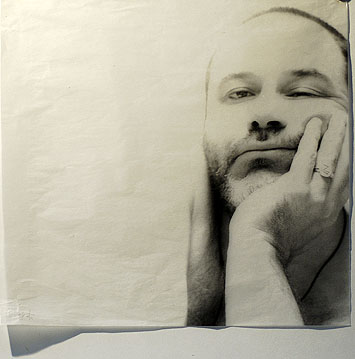Edition?
Hello my friends,
I have a question to ask...
It has been simmering for a loooong time...
Why should I limit the edition?
What a dumb idea of faking importance!
...and robbing people of the opportunity to own the work.
I understand if that happened as a result of process (one of a kind) or nobody wants to buy it, or I don't want to make more,
but to limit because some arbitrary number is accepted as a proper and worthy of pay is lunatic.
How many in edition of Greek bronzes? - just think if they would cast only a few?
How many would be lucky to survive?
What we would know if there is none survived for us to see? How many did not survived?!
I understand; to put the number on the casting as keeping truck of how many... (if it really matters?)
it will show by the end what was the real edition...
My experience showed that price (somehow!) does not make much difference in sales after all.
If I would start with lower $ - it does not sale more or faster.
There is some funny number floats for each work which needs to be matched...
People who buy my work are not "limited" by the $, rather by the sense of when and how they can pay it.
The only "legal" meaning of the limited edition implies that it was done by the artist himself or with his approval - what a joke - why I can oversee only 8+4?
The customs law of USA says that only edition under 10 is "unique", France - 8 + 4ap, Britain - 9+2ap, the rest are reproductions and considerate an "industrial production", copies and do not worth as much, so is taxable differently (actually more in European Union).... what a mess!?
What is that idea of the privileged owning the object which nobody else has?
-or even better-
"limited edition of 20000"
Greeks had an established open edition production.
Rembrandt, van Dyck, Goya, Whistler printed their etchings editions as long as plate could handle it - no numbers!
Turner specially painted the watercolors to be reproduced in open edition.
What if , I will from now on keep an edition of all new work open=unlimited ????
thank you all
simon
I have a question to ask...
It has been simmering for a loooong time...
Why should I limit the edition?
What a dumb idea of faking importance!
...and robbing people of the opportunity to own the work.
I understand if that happened as a result of process (one of a kind) or nobody wants to buy it, or I don't want to make more,
but to limit because some arbitrary number is accepted as a proper and worthy of pay is lunatic.
How many in edition of Greek bronzes? - just think if they would cast only a few?
How many would be lucky to survive?
What we would know if there is none survived for us to see? How many did not survived?!
I understand; to put the number on the casting as keeping truck of how many... (if it really matters?)
it will show by the end what was the real edition...
My experience showed that price (somehow!) does not make much difference in sales after all.
If I would start with lower $ - it does not sale more or faster.
There is some funny number floats for each work which needs to be matched...
People who buy my work are not "limited" by the $, rather by the sense of when and how they can pay it.
The only "legal" meaning of the limited edition implies that it was done by the artist himself or with his approval - what a joke - why I can oversee only 8+4?
The customs law of USA says that only edition under 10 is "unique", France - 8 + 4ap, Britain - 9+2ap, the rest are reproductions and considerate an "industrial production", copies and do not worth as much, so is taxable differently (actually more in European Union).... what a mess!?
What is that idea of the privileged owning the object which nobody else has?
-or even better-
"limited edition of 20000"
Greeks had an established open edition production.
Rembrandt, van Dyck, Goya, Whistler printed their etchings editions as long as plate could handle it - no numbers!
Turner specially painted the watercolors to be reproduced in open edition.
What if , I will from now on keep an edition of all new work open=unlimited ????
thank you all
simon

1 Comments:
Hi Simon,
I agree with you completely. It's so right on it's revolutionary! Screw the arbitrary and artificial limitation -- as long as the quality is there why shouldn't there be as many available for the people as can be made? It is the market that comes up with this plastic, commercial, bourgeois scheme for making it more scarce to make it more valuable. What does that have to do with art and transcendence? Nothing! Sleazy bunch of hustlers!
Good luck with your new blog!
Best,
Aaron
Post a Comment
<< Home